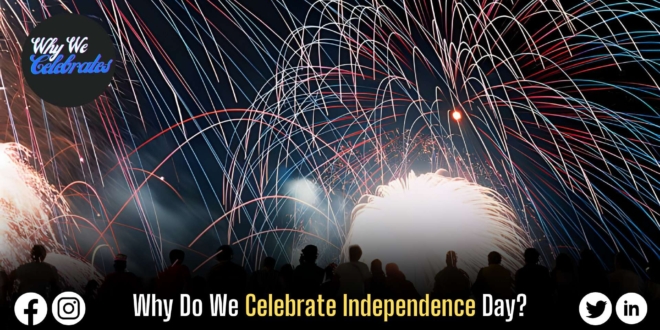Independence Day is a momentous occasion celebrated by nations across the globe. It’s a time when citizens come together to commemorate their freedom, honor their history, and reflect on the sacrifices made for their sovereignty. But why do we celebrate this day with such fervor and enthusiasm? Let’s explore the significance behind the festivities and the deeper meaning of patriotism.
Historical Roots
Independence Day commemorates the day a nation broke free from the shackles of colonial rule or foreign domination. It marks the birth of a sovereign state—a moment when a people reclaimed their destiny. Whether it’s the Fourth of July in the United States, Bastille Day in France, or Pakistan’s Independence Day, the underlying narrative remains consistent: the struggle for self-determination.
Understanding the Significance
Independence Day marks the anniversary of a nation’s liberation from colonial rule or oppressive regimes. It symbolizes the birth of a sovereign state and the culmination of struggles, revolutions, and movements for autonomy. For many countries, it’s a day of national pride and unity, a time to honor the heroes who fought for freedom and the ideals that define the nation’s identity.
Patriotism and Unity
One of the most remarkable aspects of Independence Day is the overwhelming display of patriotism. People proudly wave flags, sing anthems, and participate in parades to express their love for their country. It’s a time when citizens from all walks of life come together, setting aside differences to celebrate their shared heritage and values. This sense of unity reinforces the bonds that hold a nation together and strengthens the collective resolve to safeguard freedom and democracy.

The Spirit of Celebration
Independence Day is more than just a historical milestone; it’s a time for celebration and reflection. Families gather for picnics, barbecues, and fireworks displays, creating cherished memories that endure for generations. It’s a day filled with joy, laughter, and a deep appreciation for the liberties enjoyed by all citizens. Moreover, it serves as a reminder of the responsibilities that come with freedom – to uphold justice, equality, and the rights of every individual.
Parades and Pageantry
Parades are a quintessential part of Independence Day celebrations. Crowds gather along streets, waving flags, cheering, and witnessing military displays. These processions evoke a sense of national pride and honor the sacrifices of those who fought for liberty. The rhythmic beat of drums, the tricolor fluttering in the breeze, and the synchronized march—all contribute to the festive atmosphere.
A Federal Holiday
Independence Day is more than a mere date on the calendar. It’s a federal holiday, a day when schools, offices, and institutions close to allow citizens to reflect on their shared heritage. Families come together, sharing meals, stories, and laughter. It’s a time to honor the past, celebrate the present, and envision a brighter future.
Linking Nations
Independence Day transcends borders. While each country celebrates its unique history, the essence remains universal. From India to Brazil, from Kenya to South Korea, people gather to honor their nationhood. It’s a reminder that we’re all part of a global tapestry—a mosaic of cultures, languages, and aspirations.
In conclusion, Independence Day holds a special place in the hearts of citizens worldwide. It’s a day that transcends borders and cultures, uniting people in a shared celebration of freedom and independence. From parades and festivities to moments of reflection and gratitude, the day encapsulates the essence of patriotism and the enduring quest for liberty.
It’s a shared narrative that binds humanity—a celebration of resilience, courage, and the indomitable human spirit. So, as the sun sets on this day, let us remember that freedom knows no borders.
Happy Independence Day!






